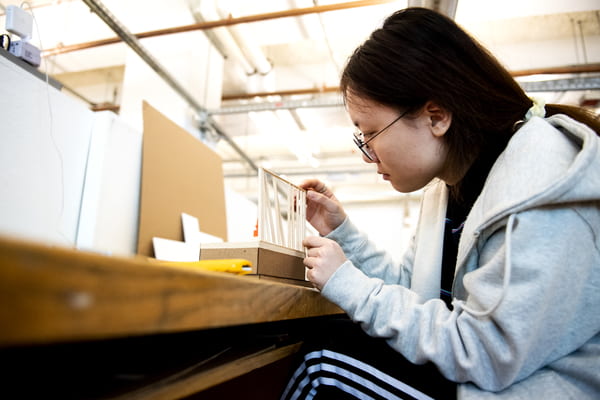2014 Issue

"Power: Its Position, Purpose, and Practice Within the Interpreting Triad" Abstract
The relationships between the three participants in a signed language interpreting situation, as well as a spoken language interpreting situation, are complex, conflicting, and contentious. This paper examines fourteen articles and three unique histories in search of the answer as to whether or not the struggle for power is the cause of friction between these participants. In particular, the questions investigated here are: (a) What is the position of power in a community; (b) What is the purpose of power; and (c) How has power been practiced and used?
Despite the oppressed group history of the minority D/deaf community, studies suggest the D/deaf identity is evolving and becoming more empowered. The non-deaf majority, which includes those individuals in the educational and medical fields, has a pathological perspective of deafness. In this paper, the history of such a perspective and its effects are further explored. The histories and roles of the spoken language interpreter, and the professional signed language interpreter, referred to as SLI by Dickinson (2010), involve many contradictions and ambiguities. With the awareness of the past roles and influences of power in their consumers’ histories, interpreters can become skilled at diffusing potential problems and more compassionate communicators.
Josephine Sondossi is from Tallahassee, Florida. She is the proud parent of one daughter and two sons. Her calling to become a signed language interpreter was confirmed 29 years ago when her 10-month-old daughter was diagnosed with a severe-to-profound bilateral hearing loss. She has since been on a journey of advocating as a parent and much learning as a student. Josephine received an Associates’ degree from Tallahassee Community College in 1996; an Associate of Science in 2000 from the Interpreter Training Program at North Florida Community College in Madison, Florida; and is pursuing a Bachelor of Science in American Signed Language/English Interpreting beginning this Fall 2014 semester as a senior at the University of North Florida in Jacksonville. Her projected year of graduation is 2016.

"Vicarious Trauma Among Sign Language Interpreters: A Pilot Study" Abstract
We report a pilot study querying American Sign Language interpreters on the topic of vicarious trauma, which refers to the effects one experiences as a result of exposure to individuals who may have experienced or are presently experiencing trauma. Sixty-seven sign language interpreters were surveyed to determine the extent to which they have experienced vicarious trauma. Participants provided responses to questions concerning their gender, age, hearing status, professional certification credentials held, type of employment (freelance or staff position), average hours worked in various settings per week, etc. Participants were also asked questions concerning vicarious trauma using questions modeled closely after Bride’s Secondary Traumatic Stress Scale (Bride, Robinson, Yegidis & Figley, 2004). Participants were also surveyed on strategies used to cope with and address the effects of vicarious trauma. Data were analyzed in order to determine any relationships between participants’ level of vicarious trauma and the settings in which they most frequently work, and separately, participants’ level of vicarious trauma and their experience based on credentialing. Coping strategies were also analyzed in order to determine the most commonly practiced technique. Post-analysis findings showed a relationship between setting and the degree to which one experiences vicarious trauma, with greater trauma experienced by interpreters working in the healthcare setting. However, no relationship was found between years of experience and the degree to which one experiences vicarious trauma.
Olivia Andert grew up in Connecticut and moved to Boston, Massachusetts in order to attend Northeastern University, where she graduated summa cum laude in 2014 with a Bachelor of Science in American Sign Language/English Interpreting. She would like to thank her teachers and fellow classmates for their support and encouragement throughout her time spent in the ASL program at Northeastern University. She also would like to extend a special thanks to Dennis Cokely for his guidance throughout the research process, and to the Regional Interpreter Education Center at Northeastern University for being a fantastic resource without which this pilot study would not have been possible.
Allison Trites, originAllison Trites, originally from Wilbraham, Massachusetts, graduated from Northeastern University in 2014 with a Bachelor of Science in American Sign Language/English Interpreting. Allison would like to thank all of her teachers and peers for the support and guidance through her years at Northeastern. She is proud to be a Northeastern alum and hopes this paper inspires others to research unique topics in the interpreting field.

